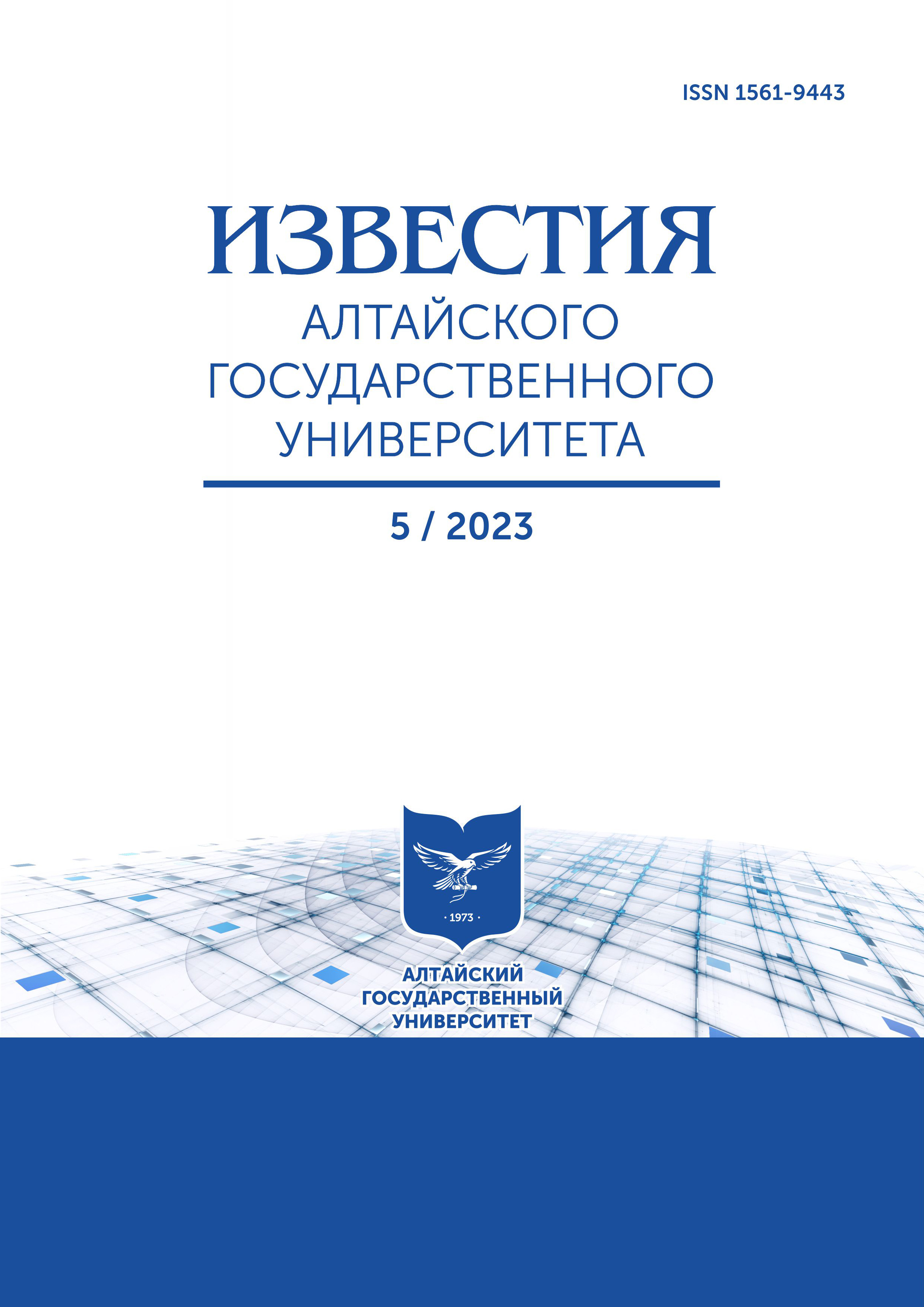Agrarian Economy of Siberia and Emergency Legislation during the Great Patriotic War
УДК 94(571.1/.5).084.8:33 ББК 63.3(253)622-2
Abstract
The article deals with the peculiarities of agricultural development in Siberia during the war. An assessment of the main losses of labor resources and material base of the region is given. The role of emergency laws in the field of labor and the consequences of their application are described. Particular attention is paid to the analysis of the government decree on the minimum of collective farm labor and the scope of application of criminal liability for its non-compliance. The significance of the use of Article 61 of the Criminal Code of the RSFSR about the failure to fulfill the state burdens is also revealed. The problem of mass starvation during the war years as a consequence of the destruction of the foundations of the agrarian economy is touched upon. It is noted that the famine in the rural areas of Siberia had already spread on the eve of the war, but most widely affected the population of the village in 1943-1944. A number of new historical facts and statistical data characterizing the situation of agriculture and the peasantry in Siberia during the war are introduced into scientific circulation. Concludes that measures of judicial threat did not play a decisive role during the war, and that motivation to work was determined by personal and collective responsibility of rural toilers. Keywords: Great Patriotic War, World War II, agriculture, livestock, Siberia, resources, peasantry, emergency laws.
Downloads
Metrics
References
Арутюнян Ю. В. Советское крестьянство в годы Великой Отечественной войны. М., 1970.
Крестьянство накануне и в годы Великой Отечественной войны, 1938-1945 // История советского крестьянства: в пяти томах. М., 1987.
Вылцан М.А. Крестьянство России в годы большой войны 1941-1945 // Пиррова победа. М., 1995.
Анисков В.Т. Жертвенный подвиг деревни. Крестьянство Сибири в годы Великой Отечественной войны. Новосибирск, 1993.
Анисков В.Т. Война и судьбы российского крестьянства. Вологда ; Ярославль, 1998.
Анисков В.Т. Крестьянство против фашизма, 19411945. История и психология подвига. М., 2003.
Ильиных В.А. Налогово-податное обложение сибирской деревни. Конец 1920-х — начало 1950-х гг. Новосибирск, 2004.
Мотревич В.П. Советский трудодень — зарплата «крепостных» колхозников в условиях тоталитарного государства // Аграрный вестник Урала. 2013. № 3 (109).
Рыков А.В. Внеэкономическая мотивация колхозного крестьянства в годы Великой Отечественной войны (на материалах Алтайского края) // Известия Алтайского государственного университета. Исторические науки и археология. 2017. № 2(94).
Вылцан М.А., Кондрашин В.В. Патриотизм крестьянства // Война и общество, 1941-1945. М., 2004. Кн. 2.
Гаврилов Н.С. Алтай в Великой Отечественной войне. Барнаул, 1990.
Государственный архив Алтайского края (ГААК). Ф. П-1. Оп. 18. Д. 286.
ГААК. Ф. П-1. Оп. 18. Д. 181.
Государственный архив Новосибирской области (ГАНО). Ф. П-4. Оп. 34. Д. 184.
ГАНО. Ф. Р-1199. Оп. 1. Д. 18.
ГАНО. Ф. П-4. Оп. 12. Д. 62.
Уголовный Кодекс РСФСР. Комментарии / под ред. и с предисловием председателя Верховного суда СССР И.Т. Голякова. М., 1946.
Российский Государственный архив социальнополитической истории (РГАСПИ). Ф. 17. Оп. 8. Д. 207.
Папков С.А. Обыкновенный террор. Политика сталинизма в Сибири. М., 2014.
РГАСПИ. Ф. 17. Оп. 8. Д. 324.
ГАНО. Ф. П-4. Оп. 34. Д. 125.
ГАРФ. Ф. Р-9401. Оп. 2. Д. 66.
Copyright (c) 2023 Сергей Андреевич Папков

This work is licensed under a Creative Commons Attribution 4.0 International License.
Izvestiya of Altai State University is a golden publisher, as we allow self-archiving, but most importantly we are fully transparent about your rights.
Authors may present and discuss their findings ahead of publication: at biological or scientific conferences, on preprint servers, in public databases, and in blogs, wikis, tweets, and other informal communication channels.
Izvestiya of Altai State University allows authors to deposit manuscripts (currently under review or those for intended submission to Izvestiya of Altai State University) in non-commercial, pre-print servers such as ArXiv.
Authors who publish with this journal agree to the following terms:
- Authors retain copyright and grant the journal right of first publication with the work simultaneously licensed under a Creative Commons Attribution License (CC BY 4.0) that allows others to share the work with an acknowledgement of the work's authorship and initial publication in this journal.
- Authors are able to enter into separate, additional contractual arrangements for the non-exclusive distribution of the journal's published version of the work (e.g., post it to an institutional repository or publish it in a book), with an acknowledgement of its initial publication in this journal.
- Authors are permitted and encouraged to post their work online (e.g., in institutional repositories or on their website) prior to and during the submission process, as it can lead to productive exchanges, as well as earlier and greater citation of published work (See The Effect of Open Access).








